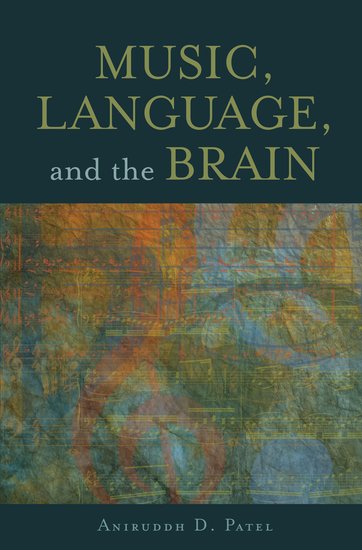By Aniruddh D. Patel
Music and language are our two most powerful and complex communication systems. What is their relationship as mental systems? This question has fascinated thinkers for centuries, but only in the past decade has it become a focus of empirical research.
Why study the relationship between music and language?
As far as we know, spoken language surpasses all other animal communication systems (e.g., bird song, whale song) in terms of its degree of structure, meaning, and complexity. This makes it hard to get insight into how it works by studying the brains of other species. Yet within our own brain is a second communication rich in complexity and meaning, namely music. Comparative music-language research can help us understand our remarkable ability to make sense out of sound.
What are some recent trends in music-language research?
Currently there’s a lot of interest in the impact of musical training on language function. There is suggestive evidence that learning a musical instrument improves the brain’s processing of speech, but how and why does this occur? Similarly, there are growing indications of a link between musical rhythmic abilities and linguistic reading skills in young children, but what is the underlying link in the brain?
What are some of the key differences between music and language?
One important difference is that music often involves simultaneous, coordinated sound production by several people (e.g., in group singing), while ordinary language involves alternation between solo ‘performers’. Music thus has a natural way of building social bonds between people, and this social aspect of music is key to its power to unite groups and build a sense of identity in a community.
Which came first, music or language?
Darwin considered this question in The Descent of Man. He argued that music came first in the form of wordless songs used for courtship in human ancestors, akin to how birds use song today. In contrast, his contemporary Herbert Spencer argued that language came first. This debate continues today. While we may never know the answer to this question, modern research on the evolution of music has turned from speculation to experimental research on the musical capacities of other species, including parrots, as a way to gain insight into the evolutionary history of our own musical abilities.
Aniruddh D. Patel is an Associate Professor, Department of Psychology, at Tufts University and the author of Music, Language, and the Brain.
Subscribe to the OUPblog via email or RSS.
Subscribe to only psychology articles on the OUPblog via email or RSS.
Subscribe to only music articles on the OUPblog via email or RSS.
Subscribe to only lexicography and language the OUPblog via email or RSS.
View more about this book on the ![]()
![]()



Recent Comments
There are currently no comments.